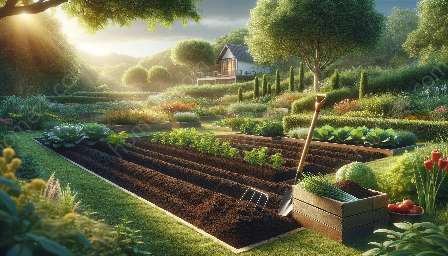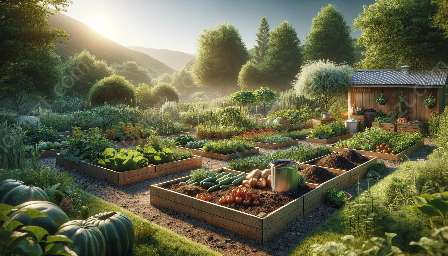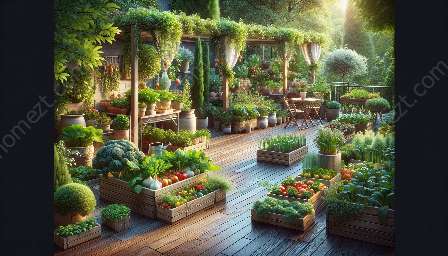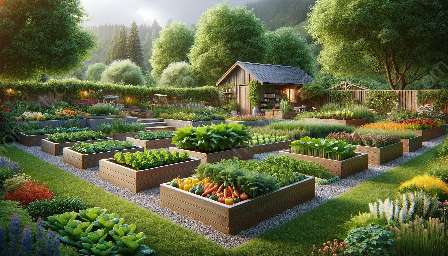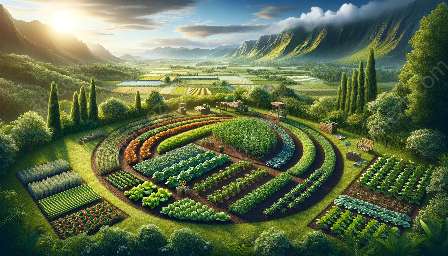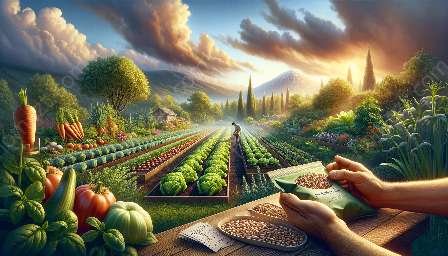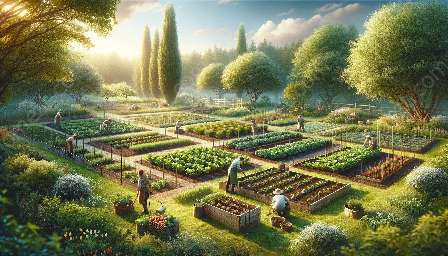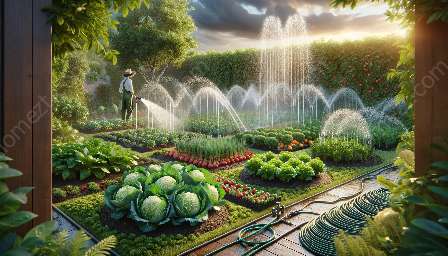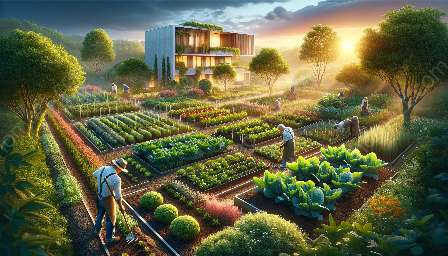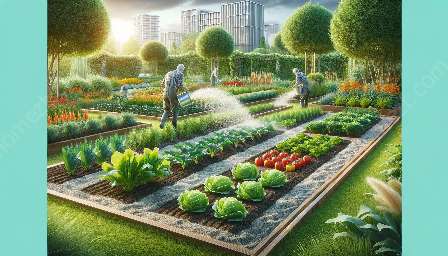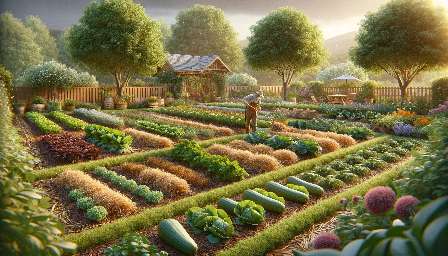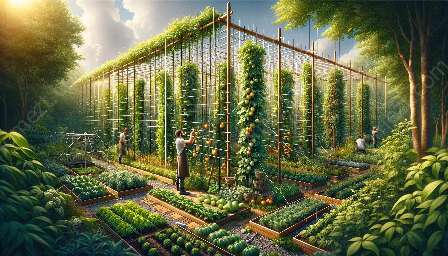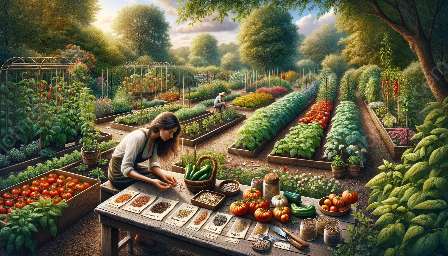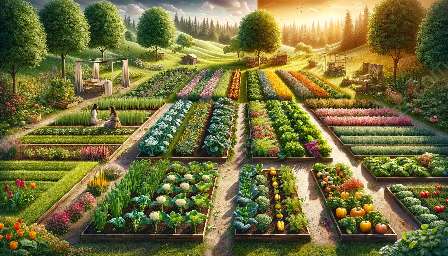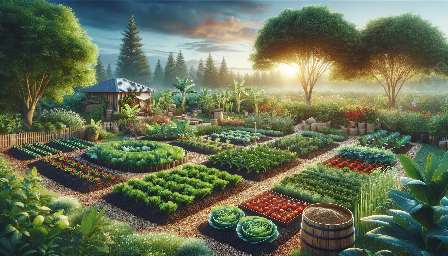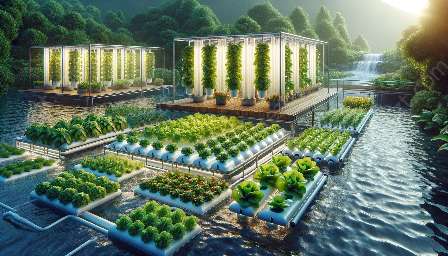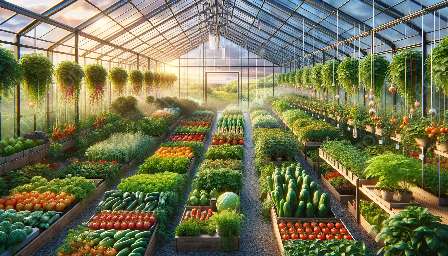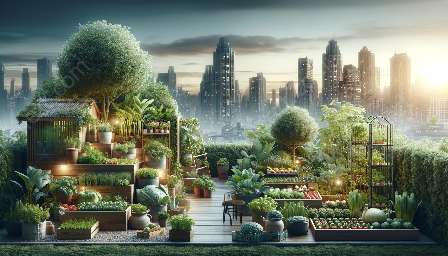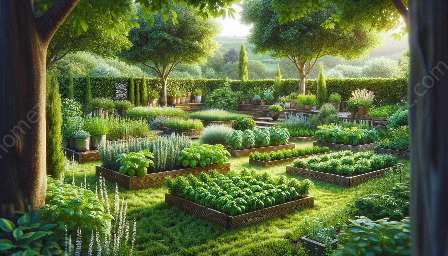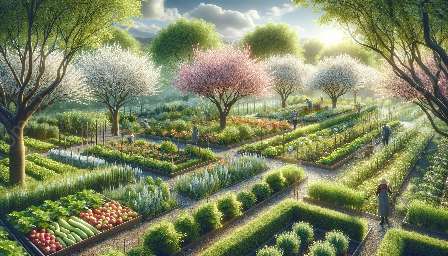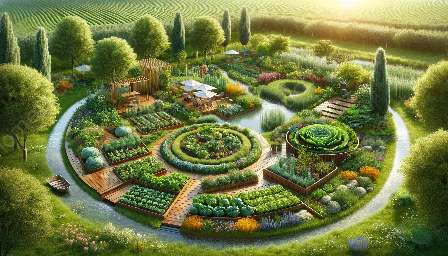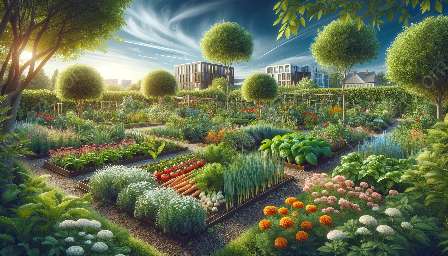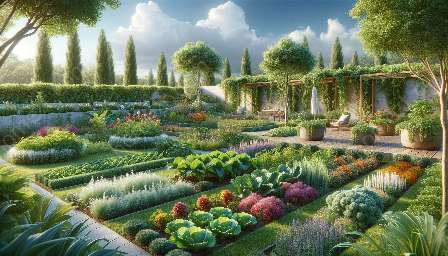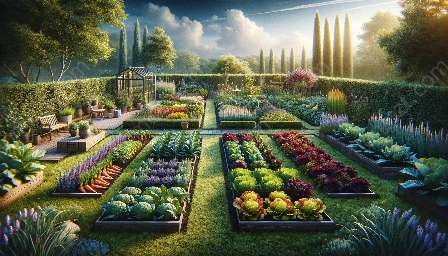Herb gardens have been cherished for centuries as a source of fragrant, flavorful, and medicinal plants. When incorporated into vegetable gardens and gardening & landscaping projects, they can enhance the beauty, functionality, and sustainability of any space.
Growing and Maintaining an Herb Garden
Creating an herb garden is an excellent way to bring nature, flavor, and aroma into your home. Whether you have a spacious outdoor area, a small balcony, or just a sunny windowsill, you can cultivate a stunning herb garden.
To start an herb garden, you'll need to select a suitable location with adequate sunlight and good drainage. The choice of herbs will depend on your culinary preferences, medicinal needs, and the local climate. Popular choices include basil, thyme, rosemary, mint, and parsley. It's essential to research the growing requirements of each herb to ensure they thrive in your garden.
Once you've selected your herbs, consider the layout of your garden. Mixing different herbs together can create a visually appealing and diverse garden. Some herbs, such as mint, can be invasive, so it's important to plant them in containers or isolated areas to prevent them from taking over the garden.
Herb gardens also require regular maintenance to ensure their health and productivity. This involves watering, fertilizing, pruning, and keeping an eye out for pests and diseases. By nurturing your herb garden with care, you can enjoy a continuous supply of fresh herbs throughout the year.
Integration with Vegetable Gardens
Herb gardens and vegetable gardens complement each other beautifully. When grown alongside vegetables, herbs can provide natural pest control, attract beneficial insects, and even improve the flavor and yield of nearby crops. For example, planting basil near tomatoes can enhance the tomatoes' flavor and repel pests that commonly affect tomato plants.
In addition to their practical benefits, herb and vegetable gardens create a harmonious and attractive landscape. The combination of vibrant greens, colorful flowers, and diverse textures will transform your garden into a visually appealing and functional oasis.
Enhancing Gardening & Landscaping Projects
Herb gardens offer a wealth of opportunities for enhancing gardening and landscaping projects. Whether you're designing a small urban garden, a sprawling estate, or a commercial landscape, herbs can play a vital role in enriching the overall aesthetic and functionality.
Integrating herb gardens into larger landscaping schemes can add sensory elements such as fragrance, texture, and visual interest. Herbs also offer creative potential for ornamental planting, edging, and container gardening. You can incorporate herbs into themed gardens, such as a Mediterranean herb garden or a culinary herb garden, to create captivating and immersive experiences for visitors.
In sustainable landscaping designs, herb gardens contribute to biodiversity, soil health, and water conservation. They offer a renewable and low-impact way to introduce diversity and resilience into the landscape, aligning with the principles of eco-friendly gardening.
Conclusion
Herb gardens are a treasure trove of natural beauty, culinary delight, and sustainable living. Their versatility and adaptability make them a valuable addition to any gardening and landscaping endeavor, whether it's a small-scale vegetable garden, an expansive outdoor space, or a meticulously designed landscape. By exploring the world of herb gardens, you can embark on a journey of creativity, wellness, and ecological stewardship that enriches your life and the environment around you.

